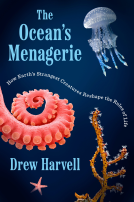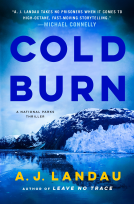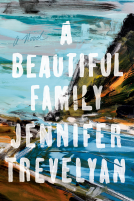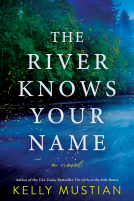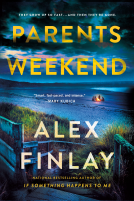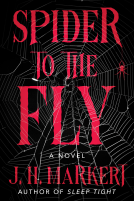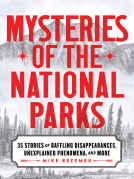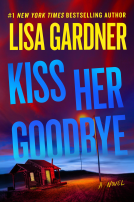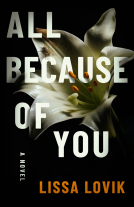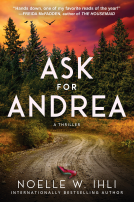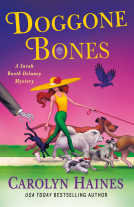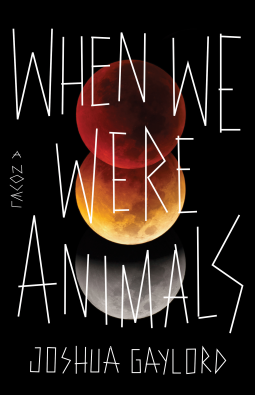
When We Were Animals
by Joshua Gaylord
This title was previously available on NetGalley and is now archived.
Send NetGalley books directly to your Kindle or Kindle app
1
To read on a Kindle or Kindle app, please add kindle@netgalley.com as an approved email address to receive files in your Amazon account. Click here for step-by-step instructions.
2
Also find your Kindle email address within your Amazon account, and enter it here.
Pub Date Apr 21 2015 | Archive Date May 21 2015
Description
When Lumen Fowler looks back on her childhood, she wouldn't have guessed she would become a kind suburban wife, a devoted mother. In fact, she never thought she would escape her small and peculiar hometown.
When We Were Animals is Lumen's confessional: as a well-behaved and over-achieving teenager, she fell beneath the sway of her community's darkest, strangest secret. For one year, beginning at puberty, every resident "breaches" during the full moon. On these nights, adolescents run wild, destroying everything in their path.
Lumen resists. Promising her father she will never breach, she investigates the mystery of her community's traditions and the stories erased from the town record. But the more we learn about the town's past, the more we realize that Lumen's memories are harboring secrets of their own. A gothic coming-of-age tale for modern times, When We Were Animals is a dark, provocative journey into the American heartland.
Nominated for the 2015 Shirley Jackson Award for Best Novel
Advance Praise
“[A] coming-of-age tale with a gory twist . . . There’s no stopping this bizarrely fascinating journey of dark self-discovery.” —Kirkus Reviews
“When We Were Animals conjures the dreamy satisfaction of revisiting the cult horror movies of your youth. . . . This is a dark, inventive and absorbing story, fittingly theatrical. It disturbs and entertains in equal measure.” —Benjamin Wood, author of the Costa-shortlisted The Bellwether Revivals
“Admit it: you remember an animal time in your own life. And if you think you don’t, Joshua Gaylord and his book will lash you with it. When We Were Animals has the power to creep you out and, yes, turn you on.” —John Griesemer, author of Signal & Noise
Available Editions
| EDITION | Other Format |
| ISBN | 9780316297936 |
| PRICE | $26.00 (USD) |
Featured Reviews
 Rosemary S, Librarian
Rosemary S, Librarian
In this book, an adult Lumen Fowler writes the account of her transgressions. In the small town where Lumen grew up, puberty was dealt with in a rather…unusual way. For a year before reaching puberty, adolescents would run wild, literally, once a month, destroying all that lay in their path. Lumen had told her father she planned to resist the “breaching” and was intent on learning the town’s secret; no easy task since all early history had been expunged from town records. But there are some secrets that are never meant to be told and there are some things that cannot be stopped.
A totally original, eerie novel that looks to have Hollywood written all over it
Wow. I really had to wait and process this book before I wrote this review. I even had a dream about it. I'm sure that sounds weird, but my dreams have always meant a lot to me; when I dream about something I've read or watched, it means it definitely left an impression on me.
The synopsis drew me in, and I was not disappointed. Lumen's narration of her life was page-turning. I couldn't wait to see what would happen next.
The idea that teenagers are wild animals is not new, but in Lumen's hometown, this idea becomes semi-literal. The teens are savages, and the author's descriptions of what happens during a full moon are captivating. And cringe-worthy.
I loved Lumen's relationship with her father. Many people will say that such a relationship is too good to be true, but it happens, and it made me miss my own father.
My only gripe is the length of this novel. I think it could've easily been 50 more pages. I wanted to read more about Lumen's life as an adult. How did she meet her husband? What's their relationship like? How does she feel about motherhood?
Also, I wanted to see more of what could've happened with Mr. Hunter, and more about the dissolution of her relationship with Polly. I guess I wanted more dialogue in some places, rather than Lumen's narration (which I enjoyed, but was at times long-winded).
Overall, this was a great novel. It will definitely be my next staff pick.
 Sawyer L, Bookseller
Sawyer L, Bookseller
When We Were Animals is a story about good and bad, about truth, secrets, and lies. Every year dozens of teenagers in Luman’s small town “breech” - that is, they fall prone to their bases, most animal instincts every month when the moon is full. Lumen is a good girl - she does her homework, has appropriate relationships, is kind to others. Her breech doesn't make her bad; it allows her to be human. Part coming-of-age story, part mystery, part love story, Joshua Gaylord’s beautiful prose will keep you hooked from the very first word.
 Kelly G, Reviewer
Kelly G, Reviewer
“And so did we all fall…”
(Full disclosure: I received a free electronic ARC for review through NetGalley. Trigger warning for rape and violence.)
“I was sixteen years old, and there was something gone wrong with me. I was sixteen, and I hadn’t grown right, and all my friends were no longer my friends, and instead I had people I bit and who bit back. I had a beautiful, sad father and an angry drunken man who saw me as the reincarnation of a perverse angel. There was a pretty young woman with an affection for my father who picked out jewelry for me because my mother was a fantasy told to me in a good-night stories. I was sixteen, and my name was light, and my body had been bloodied and torn and repaired. I did well in school. I drew maps. I wondered what my life would become – I tried to picture it. I was sixteen, and I was an animal. I was the wrong kind of animal.”
Today, Lumen Ann Fowler is a kind and devoted wife and stay-at-home mom. She brings her husband lunch at school, oversees her son’s play groups, attends community improvement meetings. She goes by the name of Ann Borden (maiden name Ann Fowler). Though she’s tried to leave her past in the past, she still feels the pull of a full moon, and the siren call of a dark, deserted night. On these sleepless nights, she writes: a memoir, addressed to no one and everyone, about when she ran wild – sort of – through the streets of Polikwakanda.
Whether due to pollution, the unique positioning of the moon, or a punishment handed down by Satan himself, “Pale Miranda” is home to a strange and sinister custom: For one year (give or take), starting at puberty, the kids “breach” – they run wild under the full moon. They fight, they f***, they raise hell. Adults and children stay inside for their own safety; residents of surrounding towns know to steer clear of this cursed town. Breaching is a dirty and dangerous custom – yet an essential one, for only when kids breach do they grow into healthy and well-adjusted adults.
Young Lumen Fowler – conscientious student, loyal friend, daddy’s girl – is convinced that she will never breach. Her late mother didn’t, you see, and surely these things are carried in the blood? For a long while, Lumen’s underdeveloped body seems to be cooperating, both to her and her father’s relief. But as she watches all of her classmates breach, one by one, only to be left behind and set apart, Lumen tires of being the “good girl”: innocent, childlike, virginal.
When she finally breaches at sixteen, it’s both a relief and a curse: even as she embraces the animal inside her, Lumen’s solitude and self-loathing continue to isolate her from her peers; meanwhile, her baser instincts threaten to consume her. As she researches the phenomenon of breaching and delves into her mother’s mythos, Lumen’s world threatens to split apart.
Every male author who laments that women are too strange and unknowable – too alien – to write convincingly needs to read WHEN WE WERE ANIMALS. Like yesterday. This is how it’s done, people.
Gaylord has written one of the most unusual and compelling coming-of-age stories I’ve ever had the pleasure of reading (plus it’s an interesting spin on the werewolf genre). Lumen is a complex, engaging, and conflicted protagonist; her adolescent angst (minus all the sanctioned violence) is something that many girls and women, myself included, can identify with. The self-loathing and shame especially hit home. I also had (have, present tense) a strained relationship with my father (though it began well before my teen years); Gaylord’s portrayal of a single father trying to raise a teen girl alone is poignant and spot-on, and gave rise to some of the most heartrending passages in the book. To wit:
“I thought he would tell me he loved me, but I hadn’t heard that from him in a long time. When I was a little girl, he would say it routinely. He seemed compelled to say it. But the declaration had gone the way of tall tale and myth.
“As though the love between a father and daughter were only a childish thing. As though womanhood made obscene that which had previously been precious and perfect.
“And so did we all fall – and in such a way were a million Edens lost.”
I get more than a little choked up every time I read that.
I hesitate to say much more, both because I don’t want to spoil the story – and also, I’m still not 100% sure what I just read. Especially disturbing is the narrator’s marriage of sex and violence, love and hate, depravity and purity; then again, I think we’re meant to be discomforted by Lumen, just as she seems to be afraid and agitated by herself – her physical body, her innermost thoughts and desires, the very essence of who she is, or thinks she is, or fears herself to be.
WHEN WE WERE ANIMALS is all but screaming for a feminist analysis; even as we see Lumen forgiving Peter for a near-rape (which never comes to pass because Lumen is “too good to rape”), we also have wonderful gems like this, which cut right to the heart of the virgin-whore complex: “My virginity, my saintliness, like the new snow you hate yourself for tromping on.” And: “I’m like the thing you worship. The thing you put on a shelf and dust every week. Don’t take Lumen down from her shelf – you’re liable to get your fingerprints all over her.”
Or how society places the onus on its girls to make sure boys don’t take things too far: “I was the good girl. The girl being groped and salivated upon in the den of her own home was the good girl. You were safe with her, because she didn’t allow anything to get out of control.”
It’s a wonderful, disquieting, sometimes vulgar exploration of adolescence and sexuality; the hazards of living on the margins; relationships between fathers and daughters, educators and students, young men and young women, friends and peers; the insularity of small rural communities; humankind’s relationship with nature; and the monsters we face in the dark – including the darkness that dwells within us.
WHEN WE WERE ANIMALS is also surprisingly, delightfully nerdy, what with its scholar-mapmaker-junior researcher narrator and her geologist father (“an engineering geologist” – “a person who knew how to harmonize man and nature.”). As animalistic as she may be, Lumen loves learning – and she puts her thirst for knowledge to use at every turn. (Yeah, Blackhat Roy and “all those f****** books” fractured my heart just a bit.)
Also – and last does not equal least – Gaylord possesses an uncanny knack for foreshadowing, particularly at the eleventh hour. On more than one occasion I caught a hint mere sentences before its meaning was revealed. Now that’s how you keep your readers on their toes, okay. Ditto: the ending, which I didn’t see coming. At all.
4.5 stars, rounded down to 4 where necessary.
 Lynn W, Reviewer
Lynn W, Reviewer
4.5 of 5 stars https://lynnsbooks.wordpress.com/2015/04/19/when-we-were-animals-by-joshua-gaylord/
Just finished reading When We Were Animals by Joshua Gaylord. I really enjoyed this. It’s something of a coming of age tale with very dark undertones. It simply drew me in and kept me fascinated for the entire journey. Frankly, this was unlike any coming of age story I’ve read before provoking all kinds of thoughts and notions as I read along.
The story is narrated by Lumen, a mother and wife now living quietly in American suburbia. She takes us back to her childhood town, Pale Miranda, a strange place where the moon holds sway over the teenagers. This isn’t perhaps quite as it seems – this isn’t a supernatural story where the teenagers become werewolves but more a story that looks at children going through puberty into adulthood and in the process allowing their most basic desires to run wild. I like the take on the supernatural theme with the moon holding sway and truly bringing out the monsters from these otherwise regular teenagers.
Lumen has been brought up by her father, her mother having died when she was but a baby. They have a close relationship and Lumen is practically the perfect daughter. She’s a model student, never home late and excels at most everything. In terms of developing maturity however Lumen is definitely way behind and gradually all her friends and schoolmates fall under the ‘breach’ as they mature. Lumen is convinced, in fact almost determined, that she won’t fall foul of the breach but the simple facts are that once the breach grips you it won’t be denied.
This isn’t one of those books where there seems to be masses of action and yet it totally gripped me, I couldn’t turn the pages fast enough. I was fascinated by what was taking place and equally mesmerised by the writing style.
In terms of characterisation there’s plenty to focus on and numerous different relationships that find their own moment in the spotlight. We have the relationship between Lumen and her father. It’s plain to see that Lumen’s dad has never really got over the death of his wife and is still held in a state of thrall even after all these years. I thought it was interesting seeing the relationship change as he realises Lumen is becoming an adult. There’s this developing awkwardness between the two as he finds it more difficult to cope with the fact that his daughter is growing up. There are the classmates and close friend – Polly, although from being young Lumen was always something of an outsider, accepted begrudgingly into the class circles purely because of Polly. Then we have the two young men of the story – Peter, who all the girls in school simply adore and Blackhat Roy – a wild young man who barely needs the moon to bring out his dangerous side.
Then there’s the whole issue of ‘breaching’. A strange phenomenon that only occurs in Pale Miranda and during which the adults stay inside behind closed curtains. It’s not something to be questioned too deeply, more a look at maybe how parents not only see their children sometimes as little monsters but also how they sometimes turn a blind eye and resign themselves to certain rites of passage. This book takes a much more intense look at that and magnifies it for the purpose of the story.
It probably will put people in mind of Lord of the Flies but really it’s a different take completely as this story isn’t about an absence of authority or rules. These children/young adults run wild during the night and during the day return to their regular daily lives, everything seemingly back to normal and the strange behaviour incited by the moon, whilst maybe not forgotten, certainly put aside. It kind of put me in mind of the strange and unexplained behaviour from The Secret History combined with the unusual character of Merricat encountered in We Have Always Lived in the Castle.
Basically, Lumen is a fascinating character – she has a certain innocent childlike exterior, almost ethereal, but this belies a certain darkness and cold detachedness that runs just beneath the surface and sometimes comes out in the strangest ways.
There are a number of revelations along the way and quite a dramatic ending!
I would definitely recommend this book
I received a copy from the publishers through Netgalley for which my thanks. The above is my own opinion.
 Bonnie G, Reviewer
Bonnie G, Reviewer
‘We live our lives by measures of weeks, months, years, but the creatures we truly are, those are exposed in fractions of moments.’
Lumen Fowler recounts her childhood growing up in a small town in the Midwest that is anything but ordinary. Children in this town, once they hit puberty, they go through what is called “breaching” where they let go of all social constraints and literally run wild and naked in the streets at night when the moon is full. Lumen is a bit of a late bloomer and believes herself to be different from the other children until she inevitably succumbs with the need to feel the night air on her skin.
First and foremost, this is not a werewolf story despite how the summary seems to allude to it. There is no physical transformation that these children undergo, only a surrendering to the madness that we’ve all felt stirring inside us at one time or another. The fact that this all occurs beneath the light of the full moon seems to be pure happenstance. When We Were Animals brought to life the horrors of coming of age and learning to navigate the trickiness betwixt childhood and adulthood.
‘…she was some nightmarish inversion of the person who had played in the sprinklers with me years before. This girl was raw, viperous, glutted on nature and night. They all were. Like coyotes, they made mockery, with their bleating voices, of those who needed light in order to feel safe.
And yet they were all too human.’
This was one of the most exquisitely written books I’ve ever had the pleasure of reading. Vibrant and completely full of (animalistic) life. It’s not a traditional horror story, however, it is a very simplistic horror that we’ve all suffered through in life. It details a savageness; a rawness. It was incredible. The plot itself is quite meandering, just as growing up seems to take forever to get through. Also, like a typical teenager that can’t wait to grow up and for life to finally happen (of which it never seems to meet your expectations), this story never amounted to anything. I kept anticipating something monumental that never came. Still, this story of growing up is well worth the effort.
‘In the daylight you scoff at the shadows you cowered from the night before.’
There has never been a shortage of books about the rigors of adolescence. Growing up has always been hard to do, and literature reflects that. But with a preponderance of literary explorations, it becomes more and more difficult to bring new perspectives to the subject.
Joshua Gaylord’s “When We Were Animals” features an unconventional approach to the topic, skewing the conventions of the coming-of-age story by introducing elements of the supernatural and a Gothic sensibility into the mix. The end result is a compelling read that will likely resonate – after all, what’s scarier than growing up?
Lumen is a young girl living in a small Midwestern town. For the most part, she has many of the typical concerns regarding the process of growing up. It’s just her and her widowed father dealing with the trials and tribulations of adolescence.
However, this unnamed town also has a secret – an inexplicable darkness that both lurks beneath the surface and serves as a matter-of-fact way of life. This secret is the mark of the one true rite of passage from childhood to adulthood.
They call it “breaching.” In this town, when young people reach a certain point – a point tangentially connected to the onset of puberty – they spend a year or so beholden to their baser, more animalistic instincts during each full moon. They rove in packs through the streets and forests of this sleepy town, raging ids indulging their every sensualistic and violent whim.
A now-adult Lumen – with a husband and child of her own – looks back on her childhood and relates her story, coming to realize just how much of the person she is now springs forth from the person that she once was. She promised her father that she would never breach; however, some promises can prove very difficult to keep.
This is a town that repeatedly lives through its own twisted Rumspringa, with every young person thrust into an existence that is filled with equal parts uncontrollable madness and exhilarating freedom. Theirs is an insular world, mistrustful of outsiders and unwaveringly accepting of their bizarre and unique condition. There is no explanation of the why behind breaching because no one ever asks for it; the fact that it is simply accepted as a way of life – as “the way things have always been” – makes it all the more mysterious.
Using the thoughts of the adult Lumen to frame the experiences of the younger version makes sense, though it occasionally feels as if Adult Lumen appears at the expense of the narrative tension evoked by her expression of memory. Her presence is necessary, lending much-needed perspective to the events of the past by illustrating the oddly skewed woman that Lumen has become, but her through line is generally less engaging than the dark remembrances of her childhood.
Gaylord’s prose is compulsively readable, possessed of a palpable momentum – the odd time shift notwithstanding. His portrayal of the enigma of adolescence shows a good deal of understanding and empathy, regardless of the literary conventions in which it is sheathed.
At its core, “When We Were Animals” is a funhouse-mirror look at the rigors of growing up. While its dark conceit certainly exaggerates the process, the feelings at its center ring true. The mysteries of impending adulthood; the pressure to conform to peer standards while still striving to stay true to oneself; the confusion with regards to physical and emotional changes – all are here in heightened form.
The nitty-gritty: An allegorical story about one teen’s journey toward adulthood, and all the unusual challenges she and her friends must overcome.
This isn’t the easiest of stories to review. There’s very little plot to talk about, for one thing. Joshua Gaylord has written a book of ideas and emotions, and in When We Were Animals he gets to the meat of what it feels like—literally—to go through puberty. It was especially poignant for me, because I happen to have a boy and a girl who are sixteen and fourteen, respectively. These are the ages when teens in Gaylord’s small town “breach,” or turn feral. During the three nights of the full moon each month (with thanks to Joss Whedon for instructing me that yes, in fact, the moon is full for three nights a month!), these teens suddenly feel the urge to run outside at night and tear off their clothes, run wild through the streets, fight and have sex with each other, and let their wild sides run completely out of control. This odd behavior lasts about a year, and then it’s gone forever. After which time, supposedly the teen has crossed the final threshold into adulthood.
The story is about a girl named Lumen, who is approaching her sixteenth birthday but who hasn’t breached yet (and fears she never will). Coincidentally, she hasn’t started her period either, so it was pretty clear that the two are connected. Lumen tells her story from two perspectives: as an adult woman looking back on her time during the breach, and her current life as a wife and mother and how the past has affected her. She’s a very interesting character, in the sense that she seems detached from most of the emotions that the other kids her age feel, probably because she's telling her story from the distance of adulthood.
Lumen faces many of the same problems that any teen would face: being accepted by your peers, dealing with bullies and peer pressure, and having that feeling deep within yourself that something wants to break free, but not knowing how to deal with it. What Gaylord has done is taken all that teen angst and given it an outlet in the form of breaching, a completely acceptable rite of passage that every teen in town must go through. I loved the feral quality to these outings under the full moon, and while there isn’t anything supernatural to breaching—it seems as if the teens literally turn into animals, but they don’t—it felt dangerous and unpredictable.
Trigger warning: there are a few uncomfortable scenes that border on rape, although in one of the scenes the boy does change his mind and stop. But even those scenes weren’t as horrific as they could be. These teens know they’re out of control, and anything done during breaching is simply part of going through the process. In one scene, one of the more unlikable characters, a boy named Blackhat Roy, goes up to Lumen after she breaches for the first time and tells her, “Now you’re fair game.” It doesn’t take much imagination to guess what Roy is talking about.
My favorite relationship is the one between Lumen and her father. Because her mother died long ago, Lumen and her father have been alone for as long as she can remember. He loves her and trusts her to always do the right thing, and I felt bad for him when his perfectly behaved daughter was inevitably caught up in the breaching madness. It’s hard to read about a parent losing faith and trust in his child, and my heart broke for both of them.
Gaylord’s prose is delightful, and I honestly kept forgetting that a man had written this story! The voice of Lumen radiates femininity, and I’m so impressed by how well a male writer stepped up to the plate and convinced me that Lumen is indeed female, with all the emotions and desires that overtake teens at that age.
When We Were Animals cast a spell over me and made me think. It made me uncomfortable at times and sad at others. I know I’ll be looking at my own children with new eyes now that I’ve read this book, watching for signs of madness, which will hopefully never come. For those readers who enjoy unusual stories, this book is highly recommended.
Big thanks to the publisher for supplying a review copy.
 Lisa T, Reviewer
Lisa T, Reviewer
When We Were Animals is a beautifully chilling story about humans and the animals within us. I absolutely love the prose and Gaylord's way with words. He takes you right into the town and into the mind of our protagonist, Lumen. Lumen Fowler grew up in a small town with a peculiar nature. For three nights of each full moon teenagers "breach", which means they run wild through the night. They succumb to a carnal and predatory nature. They become animals free of of the bonds that hinder more base instincts and desires within humans in a civilized society. This stage usually lasts about 1 year and starts about age 15 but can vary per person. It creates an interesting setting where the people of the town know to stay indoors and away from these kids as they go crazy, free of restraint.
I love Lumen as a character. She is a thinker. She spends a good bit of time explaining the meaning of her name, defining herself in terms of her name (which has numerous definitions). She loves words and maps and books. She has always felt a bit different from all of her friends and peers. She is absolutely sure she will be different in that she will not breach, she will not become one of the teenagers that runs wild in the night, she will not abandon all civilized ways to explore and rejoice in the night with the others in the wild where there are no rules to confine them. In some ways it reminds me of that "it can't happen to me" type of outlook. She sees this thing that the teenagers become a part of and she just can't reconcile that with any version of herself.
She is complex and quite conflicted trying to rectify the version of herself she wants to be, the version of herself everyone else sees and expects her to be, and the version of herself she can't help but let come the surface even if she doesn't want it to. We see this through as her older adult self recollects her early teen years. Because of this we also get glimpses of the woman she becomes. It is a very interesting perspective, especially since it is not necessarily a reliable or unbiased one. We see the intelligent, beautiful and heart warming aspects of her personality as well as the darker, potentially disturbing ones.
Almost every teenage character, regardless of how sweet or nice, had moments of raw, visceral meanness. And I really felt that was part of the story. No matter how good someone is, everyone has a bit of evil, a bit of animal in them. And what happens when you try to suppress some innate part of yourself? Or worse, what happens when you don't suppress that part of yourself? Kids learn these things and often make mistakes as they go. Not nearly to the extremes portrayed in the book. But sometimes people (particularly young people) go through a phase where repercussions don't mean as much as fulfilling their desires or fitting in. They experiment and figure out what they can and can not do. They test the limits. People can turn on each other, they can be incredibly cruel and often groups can make it worse. I think this is part of what I loved about this book, it can be an examination of how teenagers grow up and experiment as they leave their childhood behind.
I enjoyed seeing how relationships in this change and evolve as so often happens. We find ourselves suddenly in a different place or stage of life and grow apart from people in our life. I think this is a terribly common thing, especially as kids grow up. There's a loss there and we see Lumen as she deals with this change. There is also her relationship with her father which is incredibly important. Her mother died when she was very young, so her father raised her on his own. They are very close and her father has an incredible amount of respect for Lumen. You can't help but love him as much as Lumen does.
I really can't say enough great things about this book. It grabbed my attention from the beginning, and Lumen's character just fascinated me. I found an examination of coming of age and relationships in this. But even at a surface level read it is incredibly engaging. Highly recommend.
